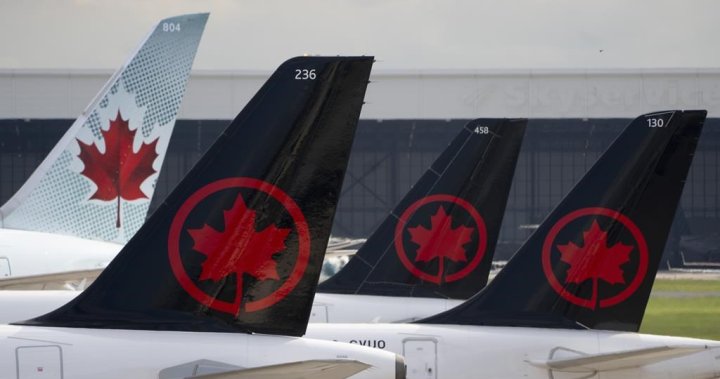The Liberal government is set to introduce proposed changes to capital gains taxes in Canada.
Finance Minister and Deputy Prime Minister Chrystia Freeland announced on Sunday that the long-awaited changes, which were originally part of the 2024 federal budget, would be coming Monday.
The proposal, which has spurred a wave of controversy since the announcement, has been pitched by the Liberals as a measure to improve “tax fairness,” generating an estimated $19 billion in revenue over five years for the federal government.
“Tomorrow we will introduce changes that will result in a small number of well-off Canadians paying a little more in tax when they sell a successful investment,” Freeland told reporters Sunday.
Capital gains are the proceeds from the sale of an asset like a stock or an investment property. Currently, all capital gains come with an inclusion rate of 50 per cent, meaning half of the profits from the sale are added to taxable income in that year.
Under the Liberals’ proposed changes, that inclusion rate would rise to 67 per cent on any gains made above $250,000 annually for individuals. That two-thirds inclusion rate would apply to all such gains made by corporations.
Canadians’ principal residences would remain exempt from capital gains taxes.
The Liberals have claimed that the measure will affect only a slim minority of Canadians, estimated at 40,000 people per year.
The Liberals’ proposed changes include a boost to the lifetime capital gains exemption for business owners, rising to $1.25 million from just over $1 million previously. Entrepreneurs would also be able to claim a reduced inclusion rate of 33 per cent on capital gains up to $2 million over their lifetime, according to the budget.
Financial news and insights
delivered to your email every Saturday.
But some business leaders and other critics have said the move will have consequences beyond a few individual Canadians’ tax bills.
Doctors, lawyers and other professionals have objected to the capital gains tax change since it was announced, saying their ability to retire and take time off is contingent on profits made from their practices.
The Canadian Medical Association said in a statement Sunday that it is “deeply disappointed” in Freeland’s announcement that the federal government plans to proceed with the tax change. It warned the change will “add undue pressure and financial strain on physicians, undermining the stability of our health-care system.”
Freeland was asked Sunday whether there would be any changes to the proposed measures from when they were announced in April’s budget. She responded by saying the Liberals are following the “broad outlines” of capital gains changes contained in the budget.
The finance minister went on to defend the capital gains changes as a way to fund other investments in the budget in a “fiscally responsible way.” She pointed to the Bank of Canada’s decision to cut its benchmark interest rate last week as proof the federal government was not fuelling inflation by spending beyond its means.
But Benjamin Bergen, president of the Council of Canadian Innovators, told Global News on Sunday that the central bank’s rate cut is more a sign that Canada’s economy is struggling and needs a boost.
The proposed changes to capital gains taxes are an “ill-baked idea” that will hamper growth outlook by discouraging Canadians to start and invest in their businesses, he argued. He said that CCI members have already told him that investors are wary of putting more capital into Canadian firms based on the proposed changes in the budget two months ago.
“All of them indicate that this is something that will make it more difficult for us to be able to grow, create opportunity and ultimately prosperity to pay for the social programs we care about,” Bergen said.
Though the Conservative Party has not indicated how it will be voting on the proposal, leader Pierre Poilievre has been vocal about his objection to the capital gains tax change and proposed 2024 budget.
The NDP have indicated they will support the proposed changes to capital gains taxes.
When asked in April if she was separating the capital gains bill to force the Conservatives to vote directly on the item, Freeland said, “no.”
Speaking on Sunday, however, Freeland urged Canadians to “pay attention to any members of Parliament voting against these changes and consider their motivation.”
“This week will be an important political moment for our democracy. It will be a moment when Canadians will be able to see what each one of their members of parliament believes and and stands for,” she said.
The capital gains tax changes are set to take effect on June 25, whether or not the measures are passed into law by that date.
— with files from Global News’ Naomi Barghiel, David Baxter and David Akin
© 2024 Global News, a division of Corus Entertainment Inc.



